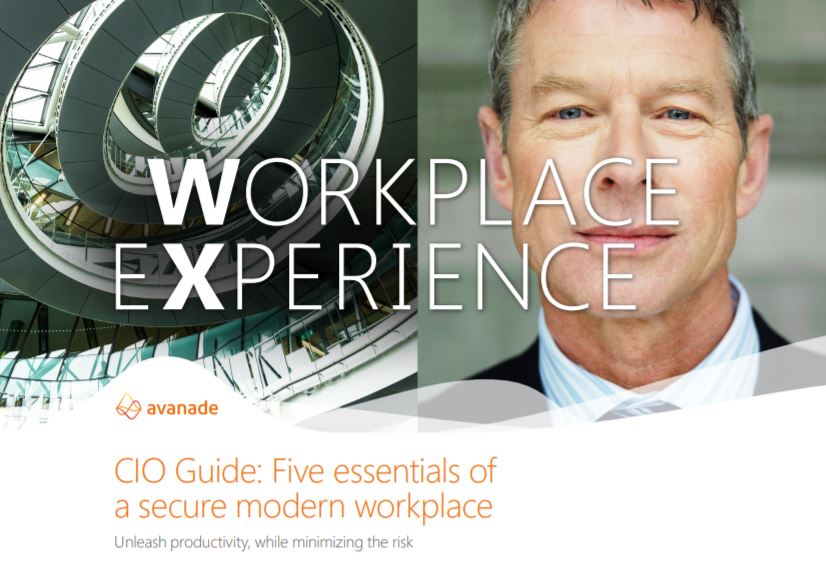Most UK workers don’t want to return to the office
Employees see productivity gains due to remote working, although many are still not supported by adequate IT


Remote working arrangements have led to benefits for the majority of UK office workers, despite a handful of employers failing to equip their staff with the technology required.
Most people working from home due to the coronavirus pandemic (55%) have registered a productivity boost due to additional free time in their day, according to research commissioned by Okta.
Remote working has also led to the majority of employees (62%) experiencing an increase in flexibility, which, in turn, allows them to focus more on work.
Despite a radical shift in the way many employees across the economy are working, only a third have felt their productivity levels take a hit as a result. Incidentally, this finding chimes with the proportion of people who feel let down by their employees with regards to being supplied with the technology needed to execute their roles remotely.
For instance, 28% of newly-remote workers reported their businesses had not equipped them with the necessary hardware, such as a laptop, in order to work productively from home. Meanwhile, 24% of remote workers said they couldn’t access the software they needed at the beginning of the pandemic.
The findings culminate in just 24% of respondents indicating they want to return to the office full-time, with a further 35% suggesting they’d prefer a flexible arrangement where they can work from home on a part-time basis.
“The COVID-19 pandemic has forced us all to think and act differently”, said Okta's EMEA VP and GM Jesper Frederiksen. “Businesses have had to learn the hard way about the need to digitally transform to survive, and it is these learnings that will help us emerge from this crisis stronger.”
Get the ITPro daily newsletter
Sign up today and you will receive a free copy of our Future Focus 2025 report - the leading guidance on AI, cybersecurity and other IT challenges as per 700+ senior executives
Drilling down into the detail of changes to peoples’ day-to-day working arrangements, almost 40% said despite their new freedom that they were working the same hours as normal. A further 20% reported working longer hours than normal.
Despite the sudden shift away from in-person meetings to video conferencing platforms, the vast majority of workers have adapted smoothly, with only 5% saying they were not comfortable at all.
With lockdown measures forcing millions of people to work from home, the key question for many is whether it’s been for better or worse. A string of major companies has used feedback from the last few months to make fundamental changes to their working arrangements that could outlast the pandemic.
RELATED RESOURCE

Five essentials of a secure modern workplace
The CIO's guide to unleashing productivity whilst minimising risk
Twitter, for example, announced it would allow employees to work from home indefinitely beyond the pandemic. This came after OpenText revealed earlier this month that it would close half its offices and consign 15% of its workforce to permanent remote working.
The research, conducted by YouGov, put forward questions to 2,000 office workers across the UK. Beyond changes to productivity, there are aspects of traditional working that many miss sorely.
Most workers (57%), for example, suggest they miss having in-person conversations with their coworkers, while half miss the relationships they have forged with those in the office.
This touches on an apparent trade-off between productivity gains and the opportunity to build relationships at work. This theme is something Microsoft's CEO Satya Nadella referenced in recent comments, suggesting we shouldn’t be so quick to celebrate the productivity gains fuelled by remote working, as the social aspects of office working are too dear to sacrifice.
The research also raised concerns over whether organisations are fitted with sufficient cyber security protocols, with only a third of respondents “completely confident” that remote working security would keep them safe from cyber attacks.
This ranges across sectors, with workers the IT industry unsurprisingly feeling more protected than others. For comparison, just a quarter of respondents in the retail and education sectors shared a similar level of confidence.

Keumars Afifi-Sabet is a writer and editor that specialises in public sector, cyber security, and cloud computing. He first joined ITPro as a staff writer in April 2018 and eventually became its Features Editor. Although a regular contributor to other tech sites in the past, these days you will find Keumars on LiveScience, where he runs its Technology section.
-
 Bigger salaries, more burnout: Is the CISO role in crisis?
Bigger salaries, more burnout: Is the CISO role in crisis?In-depth CISOs are more stressed than ever before – but why is this and what can be done?
By Kate O'Flaherty Published
-
 Cheap cyber crime kits can be bought on the dark web for less than $25
Cheap cyber crime kits can be bought on the dark web for less than $25News Research from NordVPN shows phishing kits are now widely available on the dark web and via messaging apps like Telegram, and are often selling for less than $25.
By Emma Woollacott Published
-
 IT professionals aren’t budging on flexible work demands – and more than half say they’ll quit if employers don’t meet expectations
IT professionals aren’t budging on flexible work demands – and more than half say they’ll quit if employers don’t meet expectationsNews Analysis from Randstad shows 40% of UK-based IT pros have quit over a lack of flexible work options, while 31% of workers globally have done the same.
By Ross Kelly Published
-
 'The tide seems to be turning towards office attendance': 64% of hybrid business leaders want staff back in the office – but many worry that enforcing RTO mandates will drive employees away
'The tide seems to be turning towards office attendance': 64% of hybrid business leaders want staff back in the office – but many worry that enforcing RTO mandates will drive employees awayAnalysis Many UK business leaders want their staff back in the office more frequently, but they’re scared to implement return to office (RTO) mandates in fear of worker revolts.
By George Fitzmaurice Published
-
 Employees are dead set on flexible working arrangements – three quarters would turn down a role that didn't offer hybrid options as work-life balance becomes more important than pay
Employees are dead set on flexible working arrangements – three quarters would turn down a role that didn't offer hybrid options as work-life balance becomes more important than payNews New research shows workers are increasingly demanding flexible working arrangements from employers.
By Emma Woollacott Published
-
 Nearly half of tech workers are seeking new roles – declining employee benefits and reduced flexible working options have staff looking elsewhere
Nearly half of tech workers are seeking new roles – declining employee benefits and reduced flexible working options have staff looking elsewhereNews While salaries are rising for tech workers, other benefits are in decline, leading to a fall in job satisfaction
By Emma Woollacott Published
-
 Untethered: How CIOs and CISOs are paving the way for the new hybrid workforce
Untethered: How CIOs and CISOs are paving the way for the new hybrid workforceWhitepaper Effective techniques to transition from exposed legacy infrastructure to an effective zero trust strategy
By ITPro Published
-
 Unified endpoint management and security in a work-from-anywhere world
Unified endpoint management and security in a work-from-anywhere worldWhitepaper Learn how to converge endpoint management and security processes and systems to drive efficiency and reduce risk
By ITPro Last updated
-
 Why flexible working is critical to ensure talent retention
Why flexible working is critical to ensure talent retentionAdvertorial The changing face of flexible working will be the focal point of a webinar hosted by the Achievers Workforce Institute on July 12
By ITPro Published
-
 Hybrid work means we’re burning out harder and faster than ever
Hybrid work means we’re burning out harder and faster than everIn-depth Technology has fueled an always-on culture that’s turbocharged a new breed of burnout, but technology can also come to the rescue
By Sandra Vogel Published